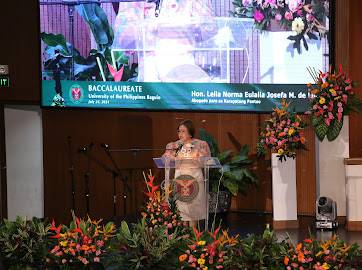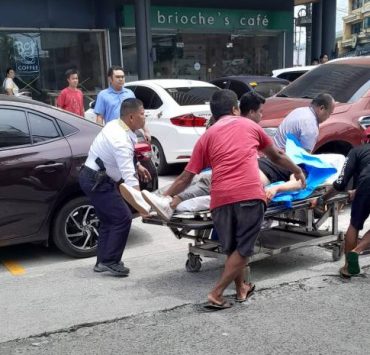De Lima notes ‘positive change’ as public turns vs drug war

BAGUIO CITY – Former Senator Leila de Lima still has hope that the country is headed for positive changes, as proven by a public change of heart regarding the infamous drug war waged by former President Rodrigo Duterte.
“The turn around in public opinion on the six-year drug war is an example that things can still change for the better,” said De Lima in a speech at Wednesday graduation rites at the University of the Philippines (UP) Baguio.
De Lima pointed out that “not so long ago, a clear majority supported summary executions [and] lauded the Duterte drug war that was solely based on the killing of impoverished masses.”
Another positive turn of events was her invitation to testify in the House inquiry into the drug war, she added.
“The very institution that gift-wrapped and delivered me to my jailer of more than six years is now inviting me to testify against the same jailer. Ano kaya iyon at hindi naman daw pupunta (What is that about since he is reportedly not participating in the inquiry)?” De Lima said.
De Lima and former Vice President Leni Robredo were guests at the UP Baguio commencement exercises, which took place while Super Typhoon “Carina” (international name: Gaemi) pummeled the summer capital.
Authoritarian experiments
De Lima said Filipinos “lost their marbles” in 2016 when they considered extrajudicial killings “as a means to change our society for the better.”
She said being isolated for years while under detention opened many revelations, including a realization that “small victories will always matter, [but] change will be slow… [and] will not be revolutionary because nothing good comes out of instant solutions.”
She said the Philippines has “experimented twice with authoritarianism- first from 1972 to 1986, and again from 2016 to 2022.”
The lesson from these periods in history was that “we cannot issue a blank check for a single leader to change the country for us, and especially if he promises to do it in six months,” she added, an apparent reference to Mr. Duterte’s self-proclaimed time frame to eliminate drug traffickers.
“The promised eradication of crime and drugs did not come true with the instantaneous killing of impoverished Filipinos… It was a populist platform that fed on people’s fears, impatience and sense of entitlement,” she said.
The belief that change would come automatically was “the first mistake of the 1986 People Power revolution,” said De Lima.
“Many of us then thought that by toppling a dictator, we could always go back to minding our own lives and leave governance to politicians and bureaucrats. We now know this is wrong. We can’t assume that centuries of economic marginalization can change into equal opportunities overnight. One builds a future brick by brick,” De Lima said.
‘Tiannanmen man’
De Lima reminded the 511 graduates of batch 2024 that “a single person can always make a difference no matter the odds,” citing the “Tiannanmen man.”
It was a reference to the pro-democracy movement in China in 1989 which was violently quelled at Tiananmen Square. Its most iconic and influential image was of a man who stepped fearlessly in front of government tanks. No one knew who he was or if he survived.
De Lima said the graduates should never be afraid of speaking out even against a “sheer frenzy of collective madness,” adding, “Never underestimate the human capacity for compassion and empathy. The natural state of humanity is community and social existence… Not caring is a social deviation.”
Robredo, who was this year’s commencement speaker, also urged the graduates to continue advocating social issues they espoused as students.
Too many people have become numb to a system that has not solved poverty and other social problems, she said.
“The system has let them down repeatedly,” so some of them learned to tolerate corruption so their plight gets government attention, Robredo said.
“We have not even been able to collect back billions of pesos and government resources that were stolen. It is hard to get justice,” she pointed out.

















